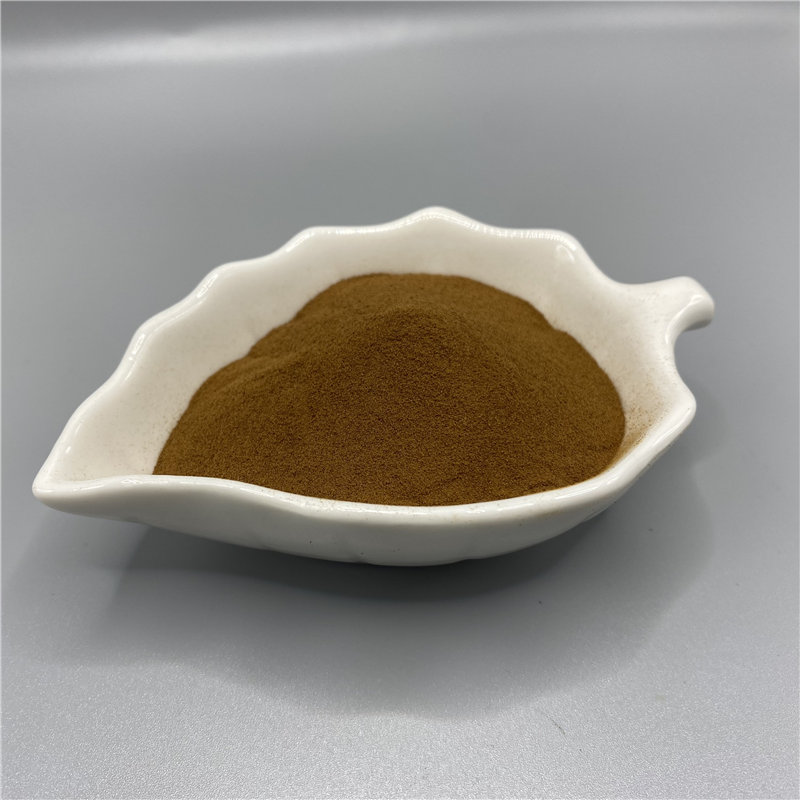Plant Source Fulvic Acid – Fulvicpro
General Information
|
Properties |
|||
|
Color |
Brown |
Odor |
Special Aromatic |
|
Form |
Powder |
Fulvic Acid Content |
95% |
|
Water Solubility |
≥99% |
Water Insoluble Matter |
≤1% |
|
Moisture |
3% |
PH Value |
4~7 |
Benefits
Fulvic acid acts as a natural chelator, forming a complex with essential minerals, thus preventing nutrient deficiencies and ensuring their availability to plants. Not only does this improve the overall nutrient status of the crop, it also helps maintain the proper balance within the soil, supports beneficial microbial activity and improves soil fertility. Other benefits including:
1, Nutritional efficiency: biochemical fulvic acid is a kind of natural organic matter, which can form stable complexes with other nutrients and improve the utilization rate of fertilizers. It can promote the absorption and utilization of nutrients by plants, increase the nutrient absorption efficiency of crops, thereby improving yield and quality.
2, Improve soil texture: biochemical fulvic acid can improve soil structure. It can combine with soil particles, increase soil viscosity and aggregation, improve soil permeability and water retention, and improve soil fertility and water retention capacity.
3,Promote the activity of soil microorganisms: Biochemical fulvic acid has a good stimulating effect on microorganisms in the soil. It can provide the nutrients needed by microorganisms, increase the number and activity of beneficial microorganisms in the soil, promote soil nutrient cycle and organic matter decomposition, and is beneficial to the formation and development of soil ecosystems.
4,Enhance crop resistance: biochemical fulvic acid can enhance crop resistance to adversity. It can regulate the internal balance of plants, improve plant immunity and stress resistance, and make crops more resistant to adversities such as pests, salinity, and drought.
Frequently Asked Questions
1, How about the lead time ?
2~3 weeks, it doesn’t need CIQ.
2, What kinds of crops can it be used for?
Typically it can be used for different kinds of crop. Take rice as an example, Fulvic acid can stimulate the growth and branching of rice roots, increase the density and absorption area of roots. This helps the rice better absorb water and nutrients from the soil and increases the plant's growth rate. It is recommended to apply at different stages of rice growth, such as before sowing, after transplanting, and heading stage. In addition, the application of fulvic acid should follow scientific methods and pesticide use norms to ensure its best effect and safety.
Application
High levels of fulvic acid have numerous benefits and are proven to be a valuable resource for the growth and development of various crops. Its effectiveness extends to a variety of farming practices, making it a great addition to any farmer. When it comes to utilizing fulvic acid in agriculture, one method that is highly recommended is the foliar spray.
By adopting this approach, farmers can maximize crop productivity, improve the overall quality of their products, and contribute to sustainable and environmentally responsible farming practices.
Foliar Application: 1-2.5kg/ha.
Root Irrigation: 2-5kg/ha.
Dilution Rates:
Foliar spray: 1:1500-2000
Root irrigation: 1:1200-1500
Packaging and Storage
Packaging and storage Available in 20Kg bag or Super sack;
Storage: Dry, cool, direct sun light proof, moisture proof warehouse;
Shelf life: 36 months.










